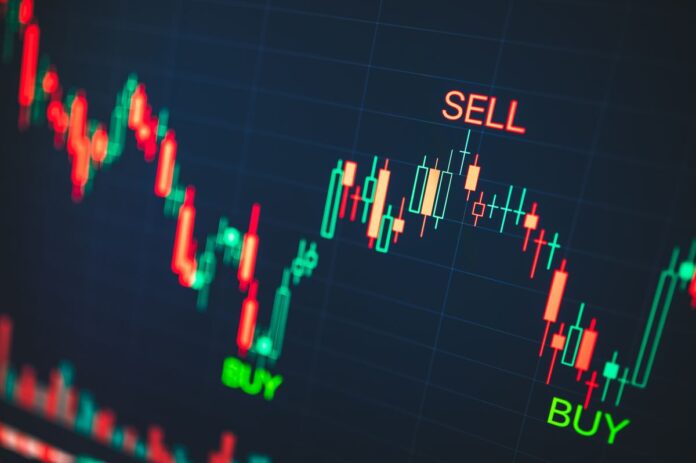
An old-school Warren Buffett stock led the Dow higher on Tuesday, but the broader-based S&P 500 and the tech-heavy Nasdaq Composite struggled with more complicated questions about the potential impact of the Trump administration’s emerging trade policy. It was indeed a cautious market as Federal Reserve Chair Jerome Powell essentially urged a little patience on the first day of his semi-annual visit to Congress.
“We do not need to be in a hurry to adjust our policy stance,” said Federal Reserve Chair Jerome Powell in a statement prepared for his appearance before the Senate Committee on Banking, Housing, and Urban Affairs. Powell cited a “policy stance now significantly less restrictive than it had been” as well as “the economy remaining strong.”
Powell said the labor market is “broadly in balance” and is not “a source of significant inflationary pressures.” As has been the case for months, years even, the Fed will depend on incoming economic data.
Sign up for Kiplinger’s Free E-Newsletters
Profit and prosper with the best of expert advice on investing, taxes, retirement, personal finance and more – straight to your e-mail.
Profit and prosper with the best of expert advice – straight to your e-mail.
“If the economy remains strong and inflation does not continue to move sustainably toward 2%, we can maintain policy restraint for longer,” Powell said. “If the labor market were to weaken unexpectedly or inflation were to fall more quickly than anticipated, we can ease policy accordingly.”
Acknowledging the Fed’s dual mandate, Powell emphasized that “policy is well positioned to deal with the risks and uncertainties that we face.”
Responding to a prompt from Sen. Jack Reed of Rhode Island during the question-and-answer session, the Fed chair said that “the standard case for free trade still makes sense.
“In any case, it’s not the Fed’s job to make or comment on tariff policy. That’s for elected people. Our job is to try to react to it in a thoughtful, sensible way and make monetary policy so that we can achieve our mandate.”
Powell explained that market interest rates may remain elevated due to factors beyond the Fed’s control. Mortgage rates “are related more to long-term bond rates, particularly the 10-year Treasury, the 30-year Treasury, for example, and those are high for reasons not particularly closely related to Fed policy.” Powell cited expectations of future Fed policy, inflation and government budget deficits as those reasons.
“Against a background of uncertainty over trade, fiscal, immigration and regulatory policies (and their impacts on the economy),” wrote BMO Capital Markets Deputy Chief Economist Michael Gregory in a note previewing the question-and-answer session, “Powell’s main message should be that the FOMC will need to move cautiously on further rate cuts.”
And so it was on Tuesday. Powell returns to the hot seat on Wednesday for testimony before the House Financial Services Committee at 10 am Eastern Time. Before that, at 8:30 am, the Bureau of Labor Statistics will release Consumer Price Index (CPI) data for January.
At the closing bell, the Dow Jones Industrial Average was up 0.3% to 44,593. The S&P 500 Index rallied during the last hour of trading, held on for a two-point gain and read 6,068. The Nasdaq Composite, meanwhile, was off 0.4% to 19,643.
More words about tariffs and trade
According to FactSet, 146 of the 291 S&P 500 companies that conducted conference calls between December 15 and February 6 mentioned “tariff” or “tariffs” when talking about their businesses.
“This marks the highest number of S&P 500 companies citing ‘tariff’ or ‘tariffs’ on quarterly earnings calls since Q2 2019 (155),” writes senior earnings analyst John Butters.
We can add Coca-Cola (KO) to that group.
Coca-Cola stock popped Tuesday morning after Warren Buffett‘s favorite soft drink maker beat top- and bottom-line expectations for its fourth quarter and provided a strong forecast for its first quarter and the full year.
“As it relates to our strategies around ensuring affordability and ensuring consumer demand, if one package suffers some increase in input costs, we continue to have other packaging offerings that will allow us to compete in the affordability space,” said CEO James Quincey during Coca-Cola’s conference call. “For example, if aluminum cans become more expensive, we can put more emphasis on PET [plastic] bottles, etc.”
KO surged as much as 4.8% and closed just shy of its high for the day. The tariff equation may not be as simple for stocks and companies in other sectors and industries.
As Butters observes, “Many of these companies have discussed uncertainty in association with their comments on tariffs. Due to this uncertainty, a number of companies stated they were unable to quantify the impact of tariffs at the time of their earnings call.”



